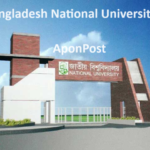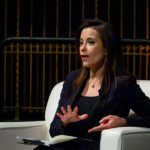The Bangladesh Education Board is the governing body responsible for overseeing the education system and conducting examinations in Bangladesh. It plays a vital role in managing primary, secondary, and higher secondary education in the country. Here’s an overview of the Bangladesh Education Board:
Bangladesh Education Board Structure
The Bangladesh Education Board has a structured framework consisting of several education boards, each responsible for specific regions and types of education. Here is an overview of the structure of the Bangladesh Education Board:
Dhaka Education Board:
The Dhaka Education Board is one of the largest and most prominent education boards in Bangladesh.
It covers educational institutions in the Dhaka Division, which includes the capital city, Dhaka, and its surrounding districts.
Chittagong Education Board:
The Chittagong Education Board oversees educational institutions in the Chittagong Division, which is one of the major administrative divisions of Bangladesh.
Rajshahi Education Board:
The Rajshahi Education Board is responsible for the educational institutions in the Rajshahi Division.
Barisal Education Board:
The Barisal Education Board covers the Barisal Division, ensuring the administration and management of educational affairs in the region.
Sylhet Education Board:
The Sylhet Education Board is responsible for the Sylhet Division, which is located in the northeastern part of Bangladesh.
Comilla Education Board:
The Comilla Education Board manages educational institutions in the Comilla Division, facilitating educational activities in the region.
Dinajpur Education Board:
The Dinajpur Education Board oversees educational matters in the Dinajpur Division, which is situated in the northern part of Bangladesh.
Jessore Education Board:
The Jessore Education Board administers educational institutions in the Jessore Division, located in southwestern Bangladesh.
Madrasah Education Board:
In addition to the divisional education boards, there is a dedicated Madrasah Education Board responsible for regulating and managing religious education in madrasahs (Islamic schools) across the country.
Technical Education Board:
The Technical Education Board focuses on technical and vocational education in Bangladesh, including polytechnic institutes and vocational training centers.
Key Functions of the Education Boards
Curriculum Development: The education boards are involved in developing and updating the national curriculum for different levels of education.
Examination Management: They conduct various public examinations, including Secondary School Certificate (SSC), Higher Secondary Certificate (HSC), Primary Education Completion (PEC), Junior School Certificate (JSC), and equivalent examinations.
Result Publication: After conducting examinations, the boards are responsible for publishing the results and issuing certificates to successful candidates.
Teacher Training: They organize training programs for teachers to enhance their teaching skills and knowledge.
Regulatory Oversight: The boards monitor and regulate schools, colleges, and educational institutions to ensure compliance with educational standards and guidelines.
Recognition and Accreditation: They recognize and accredit educational institutions, both public and private, ensuring that they meet prescribed standards.
Each education board operates independently but follows national educational policies and standards set by the Ministry of Education, ensuring uniformity and quality in the education system across the country.
Primary and Secondary Education
The Education Board oversees primary and secondary education in Bangladesh. This includes the development of curricula, syllabi, and textbooks for schools and the management of school examinations, such as the Primary Education Completion (PEC) and Junior School Certificate (JSC) examinations.
Primary and secondary education are crucial stages in a person’s educational journey, serving as the foundation for further learning and personal development. These stages typically encompass students from early childhood through adolescence and play a fundamental role in shaping their academic, social, and cognitive abilities. Let’s explore primary and secondary education:
Primary Education:
Age Group: Primary education typically serves children between the ages of 6 and 11 or 12, depending on the country’s education system.
Curriculum: The primary education curriculum focuses on building a strong foundation in core subjects like mathematics, language arts, science, and social studies. It also includes activities to develop essential skills such as reading, writing, and basic numeracy.
Teachers: Primary school teachers are responsible for imparting fundamental knowledge, often using interactive and child-friendly teaching methods to engage young learners.
Assessment: Student progress is assessed through regular tests, quizzes, and assignments. Promotion to the next grade or class is typically based on a student’s successful completion of the primary education curriculum.
Importance: Primary education lays the groundwork for future learning, helping students develop essential skills, knowledge, and a love for learning.
Secondary Education:
Age Group: Secondary education generally serves students between the ages of 12 or 13 to 18, depending on the educational structure of the country.
Curriculum: The secondary education curriculum builds upon the foundation established in primary education. It introduces more specialized subjects and allows students to explore a wider range of academic disciplines.
Teachers: Secondary school teachers are subject specialists who provide in-depth instruction in specific subjects. The curriculum becomes more challenging, requiring students to think critically and analytically.
Assessment: Assessments in secondary education often include standardized exams, coursework, projects, and, in some cases, national or international examinations that determine eligibility for higher education.
Preparation for Higher Education: Secondary education prepares students for higher education or vocational training, offering them the opportunity to choose academic or career paths that align with their interests and goals.
Diversity of Subjects: Students are exposed to a broader range of subjects, including advanced mathematics, literature, history, science specialties, and languages.
Importance: Secondary education equips students with the knowledge and skills needed for future career opportunities, higher education, and personal development. It plays a significant role in shaping a person’s future prospects.
Both primary and secondary education are critical components of a comprehensive educational system. Primary education establishes the basics, while secondary education builds upon them, preparing students for more specialized learning and future success. Together, they contribute to the holistic development of individuals and society as a whole.
Higher Secondary Education
The Education Board is responsible for higher secondary education, including the Higher Secondary Certificate (HSC) and its equivalent Alim (for madrasahs) examinations. These examinations are critical for students as they determine their eligibility for admission to universities and colleges.
Higher secondary education, often referred to as secondary or post-compulsory education, represents a critical stage in a student’s educational journey. It typically follows primary and secondary education and serves as a bridge between the foundational knowledge acquired in earlier years and the more specialized learning that takes place in higher education. Here is an overview of higher secondary education:
Age Group: Higher secondary education typically serves students between the ages of 16 and 18 or 19, depending on the country’s education system. It can also accommodate adult learners who wish to complete their secondary education later in life.
Curriculum: The curriculum in higher secondary education is designed to offer a more in-depth and specialized education compared to the previous stages. Students have the opportunity to explore a broader range of subjects and may choose to focus on specific areas of interest or expertise.
Subjects: Students often have the flexibility to choose subjects or courses based on their academic or career aspirations. Common subject areas include mathematics, sciences (biology, chemistry, physics), humanities (history, literature, philosophy), social sciences (economics, sociology, psychology), and vocational or technical courses.
Preparation for Higher Education: Higher secondary education serves as a preparatory phase for higher education, such as university or college. It provides the academic foundation and qualifications required for admission to undergraduate programs.
Qualifications: Successful completion of higher secondary education typically results in the award of a diploma or certificate, depending on the country’s education system. In some countries, students may also take national or international standardized exams (e.g., A-levels, SATs, IB) that are widely recognized for university admissions.
Specialized Tracks: Some education systems offer specialized tracks within higher secondary education, such as vocational or technical education, which prepare students for specific careers or trades. These programs may include internships or apprenticeships.
Advanced Learning: In higher secondary education, students are expected to engage in more advanced learning, critical thinking, and independent research. This stage encourages students to develop problem-solving skills and a deeper understanding of their chosen subjects.
Preparation for Life Skills: Beyond academic knowledge, higher secondary education often emphasizes the development of life skills such as communication, teamwork, time management, and research skills. These skills are valuable for personal and professional success.
Global Variations: The structure and content of higher secondary education can vary significantly from one country to another. Some countries have a standardized national curriculum, while others offer a more flexible approach with elective courses.
Importance: Higher secondary education is crucial for personal and professional development. It equips students with the knowledge and qualifications necessary for higher education, skilled employment, and participation in a globalized workforce.
In summary, higher secondary education plays a pivotal role in a student’s educational journey, providing the foundation for higher education and future career opportunities. It offers a diverse range of subjects and pathways, allowing students to explore their interests and aspirations while developing essential skills for success in the modern world.
Conducting Examinations by Education Board
The Bangladesh Education Board plays a vital role in conducting various examinations across the country, including those for primary, secondary, and higher secondary education levels. The board’s primary responsibilities include organizing, overseeing, and managing the examination processes. Here is an overview of how examinations are conducted by the Bangladesh Education Board:
Exam Scheduling: The Bangladesh Education Board establishes a schedule for different examinations, including dates for application submission, examination commencement, and result publication.
The schedule is typically published well in advance, allowing students and educational institutions to prepare accordingly.
Registration and Application: Students or candidates interested in taking the examinations must register and complete the application process within the specified timeframe.
The application process includes providing necessary information, documentation, and fees.
Admit Card Issuance: Once the application process is complete, the Education Board issues admit cards to eligible candidates.
Admit cards contain essential information such as the candidate’s name, photograph, examination center details, and exam schedule.
Examination Centers: The Education Board designates examination centers across the country where candidates will sit for their respective exams.
Centers are selected based on their capacity and suitability for conducting examinations.
Examination Security: Ensuring the security and integrity of examinations is a top priority. Measures are taken to prevent cheating, including the strict enforcement of rules, the use of invigilators, and the prohibition of unauthorized materials or devices.
Conducting Examinations: Examinations are conducted according to the predetermined schedule and syllabus. Students are required to appear at the designated examination centers on the specified dates and times.
The Education Board provides examination question papers and instructions to the examination centers.
Monitoring and Supervision: The Bangladesh Education Board deploys monitors and supervisors to oversee the examination process, maintain discipline, and ensure that the examinations are conducted fairly and without irregularities.
Answer Sheet Submission: After completing the exams, candidates submit their answer sheets to the invigilators or examiners.
Answer sheets are collected, sealed, and securely transported to centralized locations for evaluation.
Evaluation and Grading: The answer sheets are evaluated by trained examiners and teachers. Marks are awarded based on the grading criteria specified by the Education Board.
Results are compiled and reviewed for accuracy.
Result Publication: Once the examination papers are evaluated and the results are finalized, the Bangladesh Education Board publishes the results. Results are typically made available online and can be accessed through the official website of the respective education board.
Certificates and Transcripts: After the announcement of results, successful candidates receive certificates or transcripts, depending on the level of examination. These documents are essential for further education or employment.
Post-Examination Procedures: The Education Board also handles post-examination procedures, including rechecking or reevaluation requests, issuance of certificates, and other administrative tasks.
The Bangladesh Education Board’s rigorous examination process aims to maintain fairness, transparency, and the integrity of the education system. It plays a crucial role in evaluating students’ academic achievements and qualifications, ultimately shaping their future educational and career opportunities.
Other Important Tasks of Education Board
Curriculum Development: The Education Board is involved in the development and updating of the national curriculum for different levels of education. This includes setting educational standards and guidelines for schools and colleges.
Teacher Training: The Education Board is also responsible for organizing training programs for teachers to enhance their teaching skills and keep them updated with modern teaching methodologies.
Digital Initiatives: In recent years, the Bangladesh Education Board has taken steps to digitize various processes, including online registration for examinations, result publication, and distribution of digital textbooks to schools.
Regulatory Functions: The Education Board monitors and regulates schools, colleges, and educational institutions to ensure that they adhere to prescribed standards and guidelines.
Recognition: It is responsible for recognizing and accrediting educational institutions in Bangladesh, both public and private.
Education Research: The Education Board conducts research to improve the quality of education in the country and to adapt to changing educational needs.
Continuous Assessment: It has introduced systems of continuous assessment and grading to evaluate and improve the overall quality of education.
The Bangladesh Education Board plays a pivotal role in shaping the education system of the country, ensuring that it meets international standards and provides quality education to the nation’s youth. It continually works to enhance the educational landscape, contributing to the growth and development of Bangladesh.
FAQ about Bangladesh Education Board
Question: What is the Bangladesh Education Board?
Answer: The Bangladesh Education Board is the central authority responsible for overseeing and regulating the education system in Bangladesh.
Question: How many education boards exist in Bangladesh?
Answer: Bangladesh has multiple education boards, including divisional, madrasah, and technical education boards.
Question: What is the primary role of the Bangladesh Education Board?
Answer: The primary role of the Bangladesh Education Board is to manage and regulate the education system, develop curricula, conduct examinations, and set educational standards.
Question: What are divisional education boards responsible for?
Answer: Divisional education boards oversee and manage educational activities within their respective divisions.
Question: Who manages primary education in Bangladesh?
Answer: Primary education in Bangladesh is managed by the Directorate of Primary Education under the Ministry of Primary and Mass Education.
Question: What are some of the major examinations conducted by the Bangladesh Education Board?
Answer: The Bangladesh Education Board conducts various examinations, including SSC (Secondary School Certificate), HSC (Higher Secondary Certificate), JSC (Junior School Certificate), PSC (Primary School Certificate), and others.
Question: What is the purpose of the Secondary School Certificate (SSC) examination?
Answer: The SSC examination is a crucial public examination in Bangladesh for students completing their secondary education. It assesses their academic achievements and determines their eligibility for higher education.
Question: What is the Higher Secondary Certificate (HSC) examination?
Answer: The HSC examination is another important public examination conducted by the Bangladesh Education Board. It serves as the gateway to higher education in colleges and universities.
Question: What is the Junior School Certificate (JSC) examination?
Answer: The JSC examination is for students completing their eighth-grade education and transitioning to secondary education. It is a standardized assessment of their academic progress.
Question: What is the Primary School Certificate (PSC) examination?
Answer: The PSC examination is administered to students completing their primary education. It evaluates their knowledge and skills at the primary level.
Question: How can students obtain their admit cards for board examinations?
Answer: Students can download their admit cards from the official website of the respective education board, following the specified instructions and deadlines.
Question: What is the grading system used by the Bangladesh Education Board?
Answer: The Bangladesh Education Board typically uses a grading system based on letter grades such as A+, A, A-, B, etc., to assess students’ performance in examinations.
Question: What are the prerequisites for applying to higher education institutions in Bangladesh?
Answer: To apply to higher education institutions like universities and colleges, students usually need to have completed their HSC examination or an equivalent qualification.
Question: Are there specialized education boards in Bangladesh?
Answer: Yes, Bangladesh has specialized education boards, including the Madrasah Education Board and the Technical Education Board, catering to specific types of education.
Question: What subjects are covered in the HSC examination?
Answer: The HSC examination covers a wide range of subjects, including science, arts, commerce, and vocational courses.
Question: How are examination questions created for the Bangladesh Education Board?
Answer: Examination questions are developed by subject experts and teachers following a rigorous process to ensure fairness and quality.
Question: What is the role of exam invigilators during board examinations?
Answer: Exam invigilators are responsible for maintaining exam security, enforcing rules, and preventing cheating during board examinations.
Question: What measures are in place to prevent cheating during board examinations?
Answer: To prevent cheating, the Education Board enforces strict rules, monitors exam centers, and employs invigilators. Electronic devices and unauthorized materials are prohibited.
Question: How can students access their examination results?
Answer: Examination results are typically published on the official website of the respective education board, and students can check their results online.
Question: What is the role of the Bangladesh Education Board in curriculum development?
Answer: The Education Board is involved in developing and updating the national curriculum for various levels of education, ensuring it aligns with educational standards.
Question: How are teachers trained and prepared for their roles in the education system?
Answer: The Education Board organizes teacher training programs and workshops to enhance teachers’ skills and pedagogical knowledge.
Question: What types of vocational and technical education programs are available in Bangladesh?
Answer: Bangladesh offers a range of vocational and technical education programs to prepare students for careers in various fields, including engineering, agriculture, and healthcare.
Question: Are there options for reevaluation or rechecking of examination papers?
Answer: Yes, students have the option to request reevaluation or rechecking of their examination papers if they believe there has been an error in the assessment.
Question: What is the role of the Education Board in accrediting educational institutions?
Answer: The Education Board is responsible for accrediting and recognizing educational institutions, ensuring they meet specified standards of quality.
Question: What is the purpose of specialized education boards like the Madrasah Education Board?
Answer: Specialized education boards, such as the Madrasah Education Board, focus on providing religious and Islamic education in addition to general education.
Question: How does the Bangladesh Education Board contribute to educational research and policy development?
Answer: The Education Board conducts research to improve the quality of education and plays a role in shaping educational policies and reforms in Bangladesh.
Question: What role does the Education Board play in promoting digital initiatives in education?
Answer: The Education Board has implemented digital initiatives, including online registration for examinations and the distribution of digital textbooks to schools.
Question: What is the structure of the Bangladesh Education Board in terms of regional divisions?
Answer: The Bangladesh Education Board consists of divisional education boards, each responsible for a specific region of the country.
Question: What is the function of regional education boards?
Answer: Regional education boards oversee and manage educational activities within their respective divisions, ensuring compliance with national standards.
Question: How does the Education Board ensure uniformity in education standards across the country?
Answer: The Education Board establishes national standards, curricula, and guidelines that are followed by all regional education boards to maintain uniformity in education.
Question: What are the key responsibilities of the Directorate of Primary Education in Bangladesh?
Answer: The Directorate of Primary Education focuses on primary education, including curriculum development, teacher training, and school management at the primary level.
Question: What are the age groups for primary and secondary education in Bangladesh?
Answer: Primary education typically serves children aged 6 to 11 or 12, while secondary education caters to students aged 12 or 13 to 18 or 19.
Question: What are some common subjects taught in secondary education in Bangladesh?
Answer: Secondary education subjects include mathematics, language arts, science, social studies, and vocational courses.
Question: What is the significance of the Bangladesh Education Board’s role in conducting public examinations?
Answer: The Bangladesh Education Board’s role in conducting public examinations ensures the fair assessment of students’ academic achievements and qualifications.
Question: What types of examinations are conducted by the Bangladesh Education Board for primary education?
Answer: The Bangladesh Education Board conducts the Primary School Certificate (PSC) and Ebtedayee examinations for primary-level students.
Question: What is the primary purpose of the Primary School Certificate (PSC) examination?
Answer: The PSC examination assesses the knowledge and skills of students completing their primary education and provides a basis for progression to the next educational level.
Question: How do students prepare for the Bangladesh Education Board’s public examinations?
Answer: Students typically prepare for board examinations through their regular coursework, study materials, and guidance from teachers and mentors.
Question: What is the grading scale used by the Bangladesh Education Board in public examinations?
Answer: The Bangladesh Education Board typically uses a grading scale consisting of letter grades (e.g., A+, A, A-, B, etc.) to assess and report students’ performance.
Question: Can students appeal or request reevaluation if they are dissatisfied with their examination results?
Answer: Yes, students have the option to appeal or request reevaluation if they believe there has been an error in the assessment of their examination papers.
Question: How does the Education Board ensure the security and integrity of public examinations?
Answer: To maintain the security and integrity of public examinations, the Education Board enforces strict rules, employs invigilators, and monitors exam centers.
Question: What measures are in place to prevent cheating during board examinations in Bangladesh?
Answer: Measures to prevent cheating include the strict enforcement of rules, the use of electronic devices, and the prohibition of unauthorized materials or devices.
Question: What role do exam invigilators play during board examinations?
Answer: Exam invigilators are responsible for maintaining exam security, enforcing rules, and preventing cheating during board examinations.
Question: How are examination questions developed for the Bangladesh Education Board’s public examinations?
Answer: Examination questions are created by subject experts and teachers following a rigorous process to ensure fairness and quality.
Question: What is the significance of the examination results published by the Bangladesh Education Board?
Answer: Examination results are essential as they reflect students’ academic achievements and qualifications, impacting their future educational and career opportunities.
Question: How can students access their examination results from the Bangladesh Education Board?
Answer: Examination results are typically published on the official website of the respective education board, allowing students to check their results online.
Question: What is the role of the Bangladesh Education Board in curriculum development?
Answer: The Education Board is involved in developing and updating the national curriculum for various levels of education, ensuring alignment with educational standards.
Question: How does the Education Board contribute to the professional development of teachers in Bangladesh?
Answer: The Education Board organizes teacher training programs and workshops to enhance teachers’ skills and pedagogical knowledge.
Question: Are there vocational and technical education programs available through the Bangladesh Education Board?
Answer: Yes, Bangladesh offers vocational and technical education programs to prepare students for careers in various fields, including engineering, agriculture, and healthcare.
Question: What is the role of specialized education boards, such as the Madrasah Education Board, in Bangladesh’s education system?
Answer: Specialized education boards cater to specific types of education, such as religious and Islamic education (Madrasah Education Board) and technical education (Technical Education Board).
Question: How does the Bangladesh Education Board contribute to educational research and policy development in the country?
Answer: The Education Board conducts research to improve the quality of education and plays a role in shaping educational











